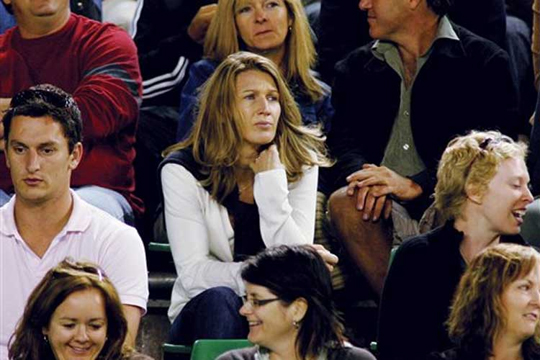Melbourne, Jan 29: It's been two decades since Steffi Graf won her last Australian Open, but her presence looms large over Saturday's final.
Serena Williams is one match away from tying Graf's Open era record of 22 Grand Slam titles.
The only obstacle for No. 1-ranked Williams is Angelique Kerber, a 28-year-old German who is seeking Graf's advice on how to win the biggest match of her life.
"Steffi, write me please," Kerber said jokingly in an on-court interview after advancing to the first Grand Slam final of her career.
Graf did just that, in a text message, the No. 7-seeded Kerber said Friday.
"She told me, 'Congrats,' and she is happy for me, and good luck in the finals."
Kerber has joked that it's her national duty to protect the record of Graf, the last German to win the Australian Open in 1994.
Over the course of the two-week tournament, Graf's name has come up repeatedly in both Kerber's and Williams' post-match news conferences.
Kerber has talked about how she grew up watching Graf's matches and later studying them on YouTube.
"She was my idol. She still is my idol," said Kerber, adding that she remembers a lot of the matches, how Graf moved, how she sliced, how she typically beat her opponents quickly.
Last year, she got to hit with Graf.
Around the time of Indian Wells, Kerber took a trip to Las Vegas, where Graf lives with her husband, four-time Australian Open champion Andre Agassi. Graf is now 46 and has kept a mostly low-profile since retiring in 1999, preferring not to join the so-called Legends matches that former pros play at Grand Slams.
"She is still in shape and she is hitting very hard, and moving still like she was moving a few years ago," said Kerber, who has been in the Top 10 for four years but until this week had never advanced past a Grand Slam semifinal. "I was really focusing. The intensity was very high."
Graf also gave her advice, which she is trying to live by.
"She taught me actually that I'm on a good way, and try to believe in myself. I was trying to do it in the last few months," Kerber said.
Kerber got off to a strong start this year, reaching the final in Brisbane where she lost to Victoria Azarenka, a two-time Australian Open champion. When the two met again, in the quarterfinals in Melbourne, Kerber won in straight sets.
Kerber has played Williams six times before, and beaten her once, in 2012, which gives her confidence.
"She is going out there to try to win again another Grand Slam, making history," Kerber said. She expects to be nervous but says the real pressure is on Williams. "I'm feeling good. I'm healthy. I'm fit. I will try to win against her. That's for sure."
The 34-year-old Williams was reminded at one news conference that when she played Graf in 1999, she referred to her as "Miss Graf," out of respect.
Before Graf retired that year, she and Williams played twice. Graf won the first time, and Williams who was just 17 won the second.
But Williams is trying not to think too much about matching Graf's 22 career titles.
"I definitely block it out. I was one off last year, too. If I don't win on Saturday, I'll still be one off," Williams said.
Last year, Williams won the year's first three Grand Slams — the Australian Open, French Open and Wimbledon — and headed into the U.S. Open trying to become the first player since Graf in 1988 to collect all four titles in one season.
She fell two matches short, losing in the U.S. open semifinals to Roberta Vinci, in one of the biggest upsets in the history of women's tennis. She took an extended break after the loss, saying in Melbourne that she needed several months off to recover physically and mentally.
She has returned to the Australian Open as the overwhelming favorite, serving as strongly as ever and playing with intense power and focus.
Williams was asked if she remembered what Kerber must feel like to be playing in her first Grand Slam final.
"I felt really good my first final. I just had this feeling before the tournament started that I was going to do really well there," said Williams, who won her first major final at the U.S. Open in 1999. "She might have the same feeling. I don't know. But it felt good."







Comments
Add new comment